How to grow Brussels sprouts – a guide to planting and growing
Learn how to grow Brussels sprouts and plant them early enough to enjoy a delicious harvest through the cooler months
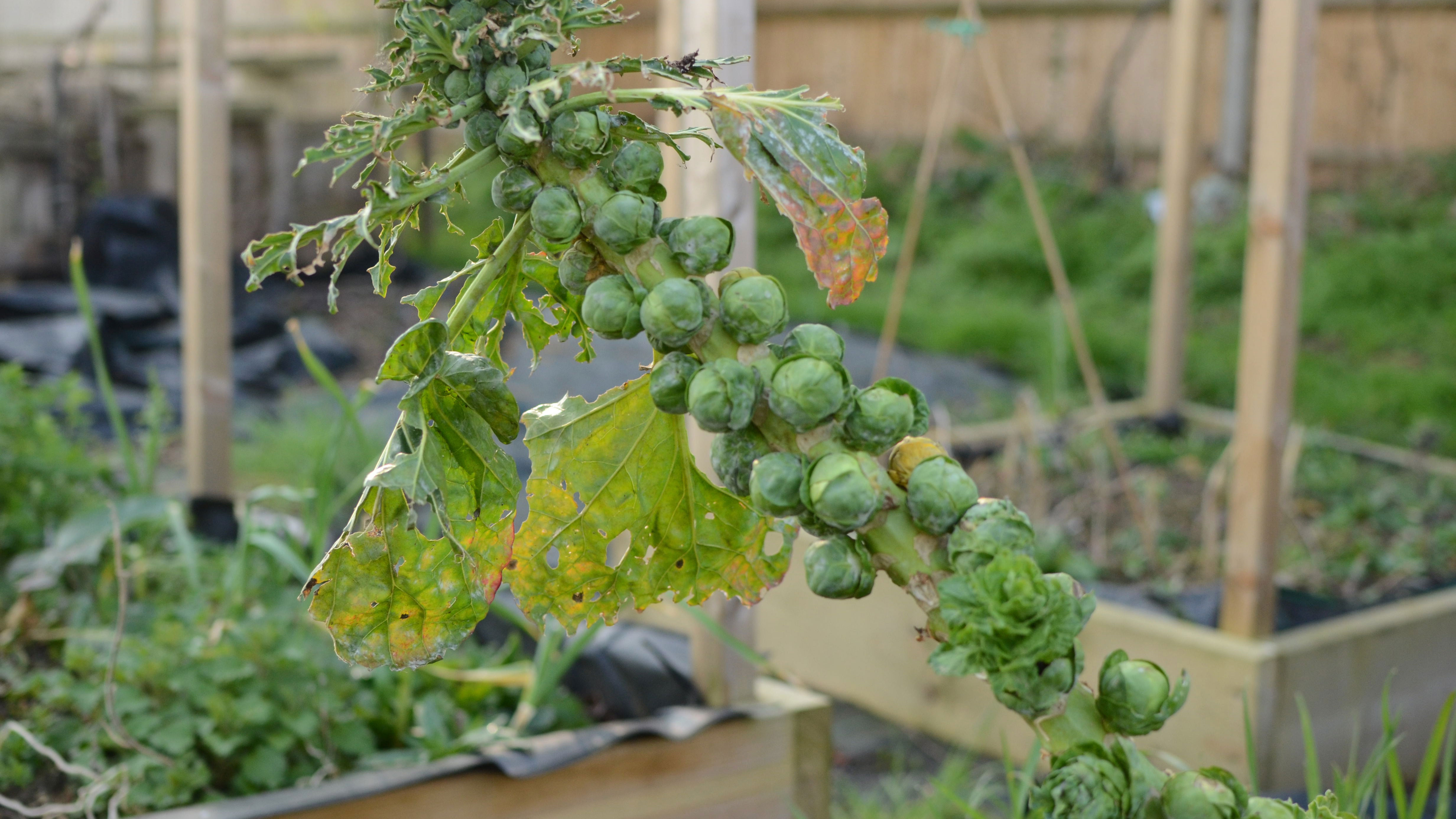
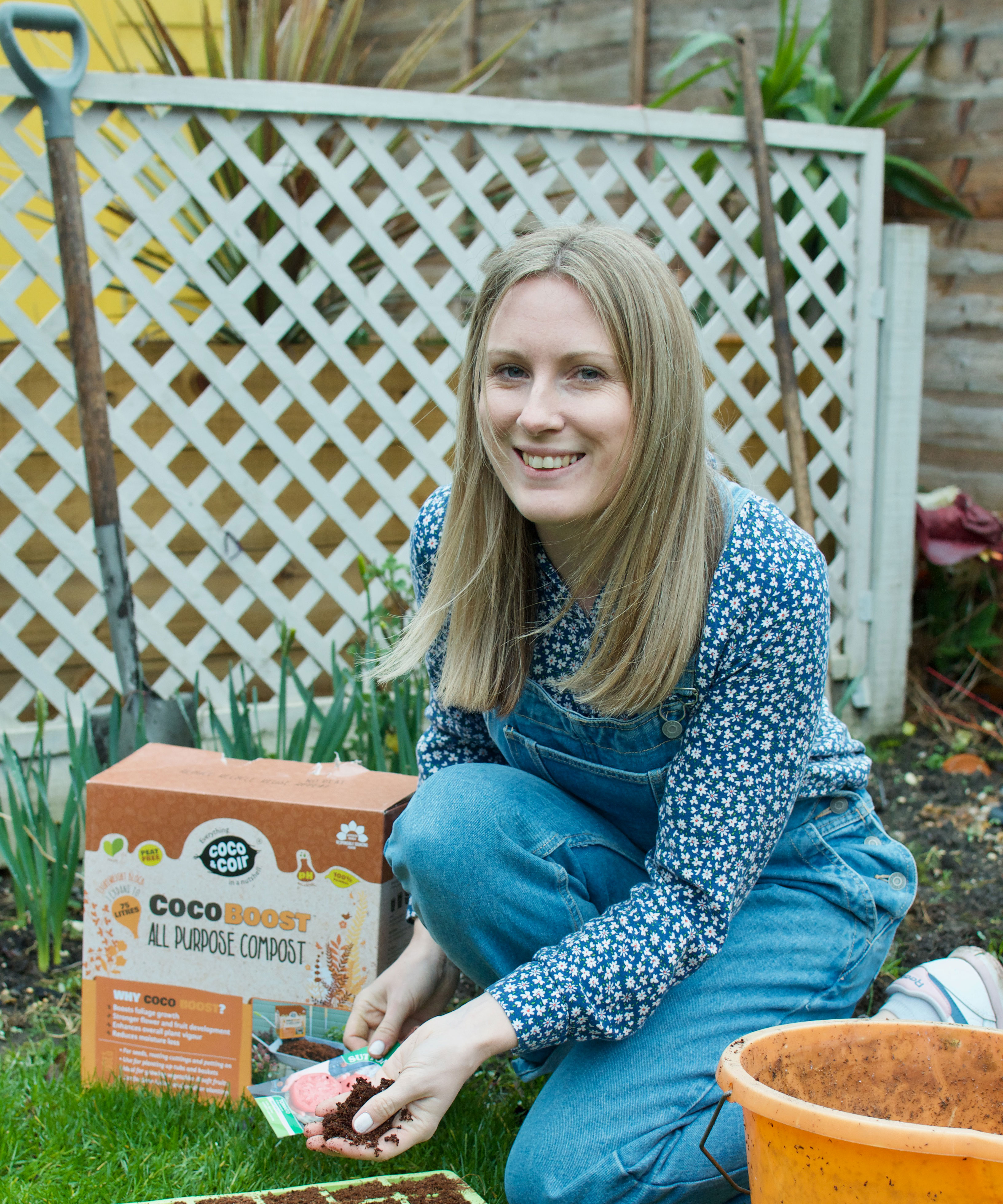
Once you know how to grow brussels sprouts in your own backyard, you’ll be able to enjoy them for months and months.
Love them or hate them, there is no denying the health benefits from home grown brussels sprouts. Bursting with fibre, vitamin K and vitamin C, these little balls of green can be roasted, boiled, steamed and fried to your liking. You can even enjoy them raw for a crunchy snack or in a salad.
Brussels sprouts will give you a healthy harvest all through the winter months, making them a great addition to consider when planning vegetable garden ideas.
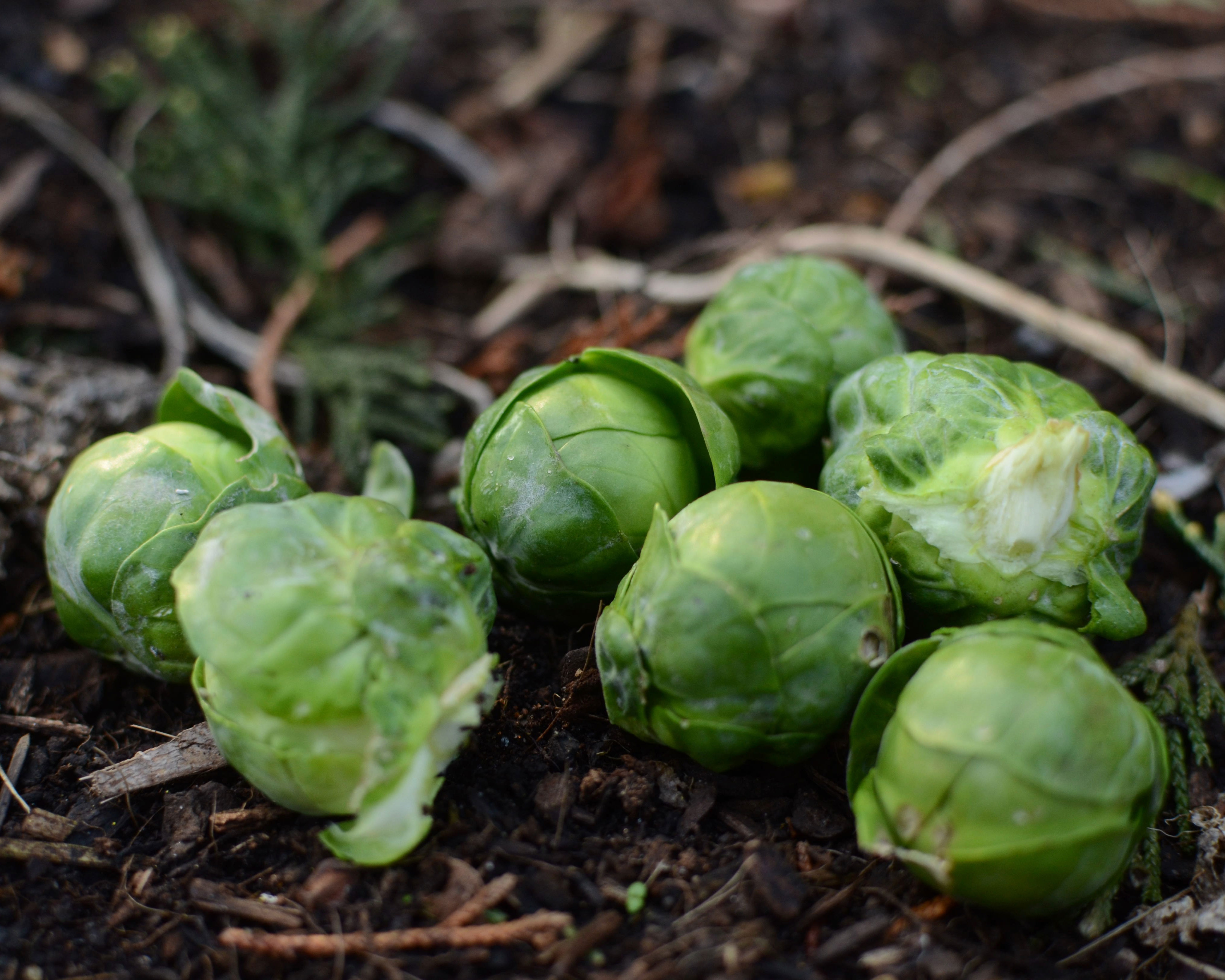
How to grow brussels sprouts – from seed
One of the best things about learning how to grow brussels sprouts is that they will provide you with a crop for your vegetable garden long after all summer harvests have ended when. Part of the organisation involved when you're planning when to plant vegetables is ensuring a succession of crops for as much of the year as possible.
'You should start your brussels sprout seeds early in the spring or in mid to late summer for a late fall harvest,' advise the team at Bonnie Plants.
The ideal climate is the 'fog belt' of the Pacific Northwest, however, brussels sprouts can be grown successfully almost anywhere when you understand the conditions the plants need.
If you allow the plant to mature during the hotter months, the sprouts will taste bitter. So time your sowing so that the brussels sprouts will mature when the weather gets colder. 'Exposure to a few frosts actually enhances the flavour of the sprouts,' explains Leona Bergman of Cedar Circle Farm and Education Center based in Vermont.
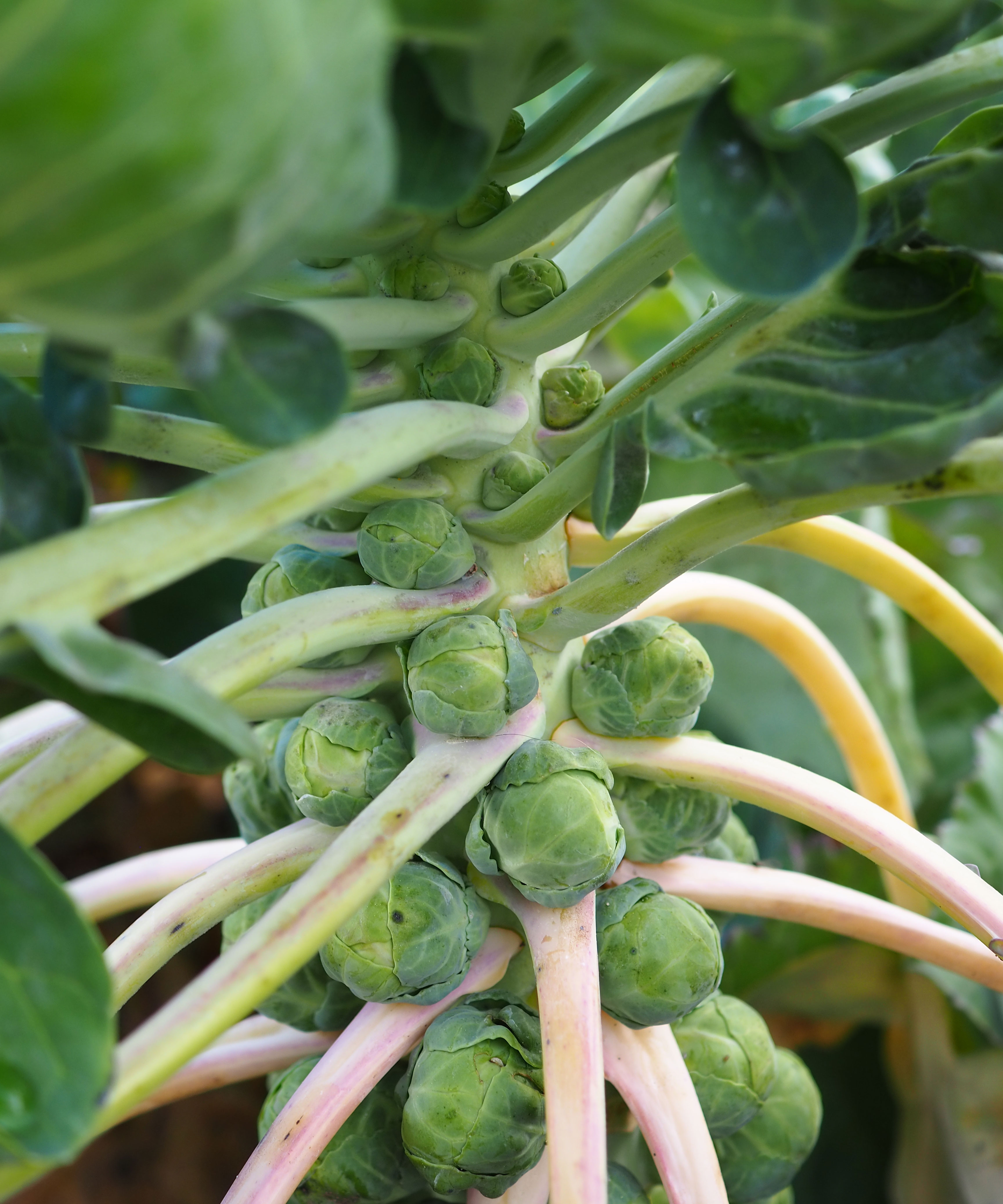
Where to grow brussels sprouts
Brussels sprouts need a well draining soil and don’t require many nutrients, making them easy an crop to grow and perfect for beginners.
The plants of this winter crop need at least 6 hours of sun a day, so choose a sunny spot. Too much nitrogen will encourage more leaves, and less sprouts. For this reason, there is no need to add additional soil improver to your homemade compost before planting.
It might be helpful to note that brussels sprout plants are big, so not necessarily the best crop to be growing if you are tight of space – but there are plenty of other crops that are ideal for small vegetable garden ideas.
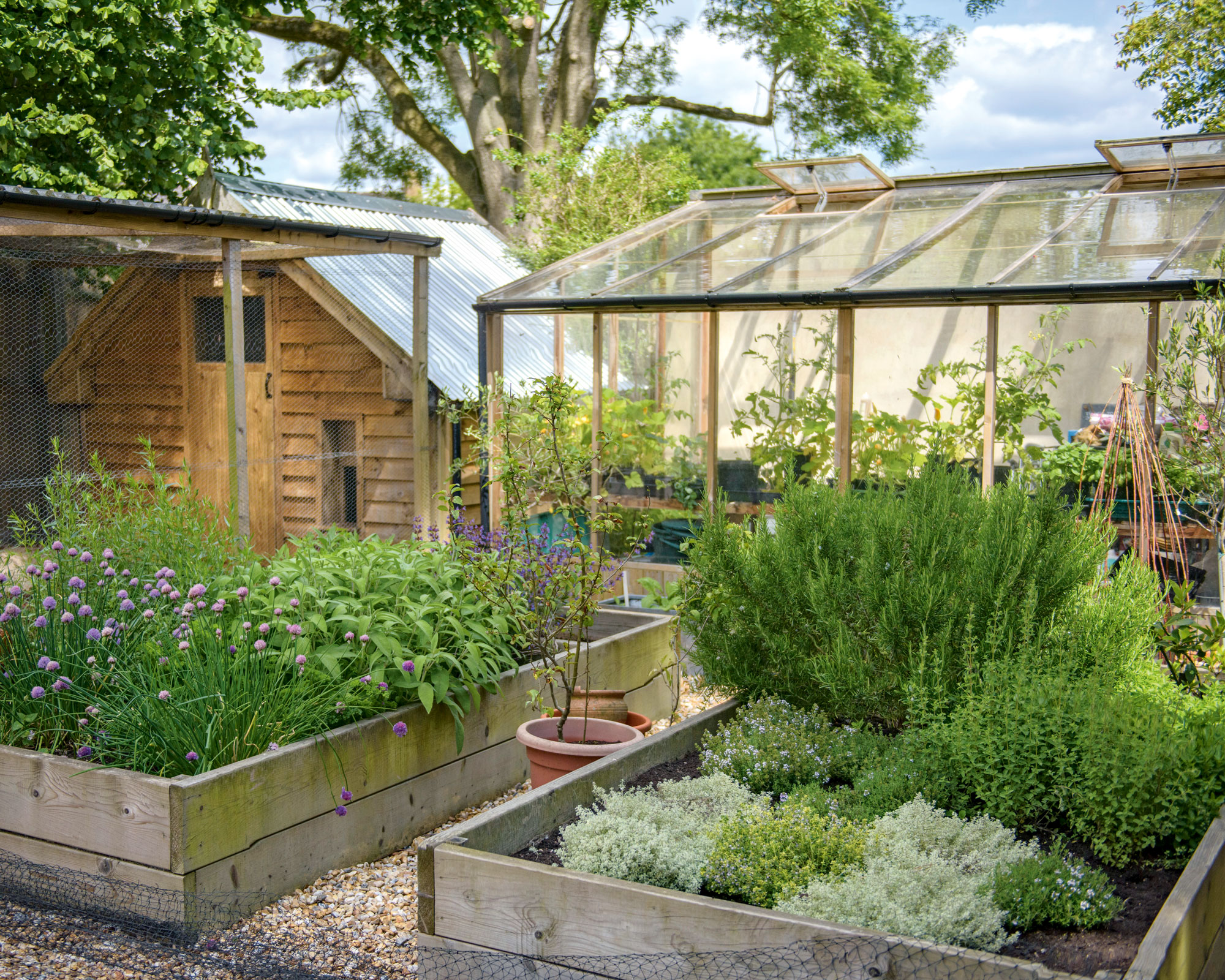
How to plant brussels sprouts
For the best results when growing brussels sprouts, start sowing the seeds early for a long harvest. Start them off under cover when you're planning a greenhouse, in a coldframe or under cloches.
Sow thinly in pots or trays about ½in deep. If planting Brussel sprouts in the ground, sow in rows 6in apart.
Brussels sprouts plants are big, so once they are big enough, space them about 18-24in apart to give them plenty of room to spread out as they grow.
Once growing well, brussel sprout plants need to be watered regularly and staked to avoid toppling over. Yellowing leaves should always be removed.
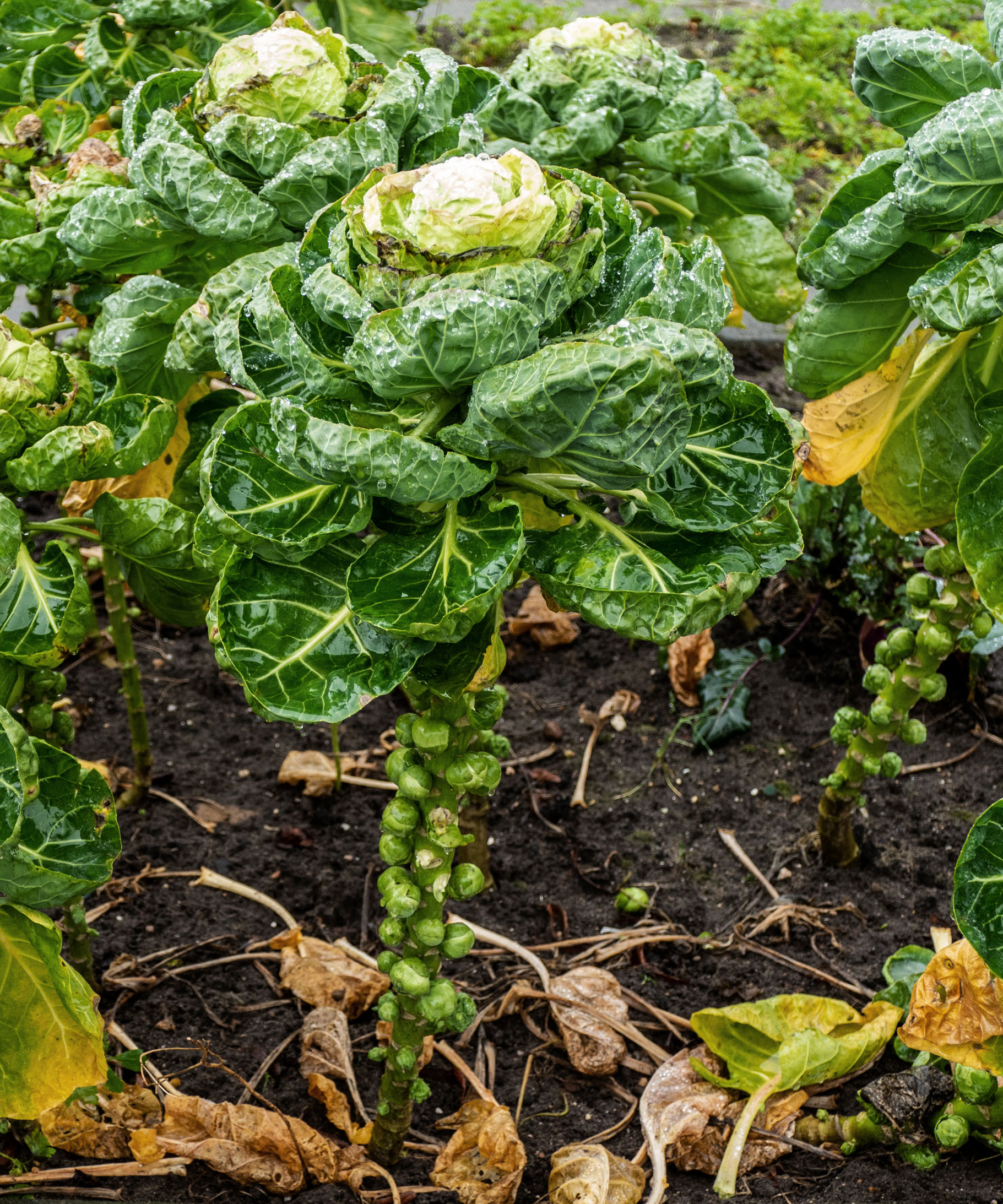
How long does it take for brussels sprouts to grow?
It takes brussels sprouts a long time to grow, and their growing season is about 85 to 100 days from seed to harvest.
They are good at tolerating colder weather and so can be overwintered in your home vegetable garden. Just mulch around the stem as the weather cools, which is one of the ways to protect plants from frost, and you can harvest fresh sprouts all through the winter, into early spring the following year.
Are brussels sprouts easy to grow?
Brussels sprouts are easy to grow and are one to add to the list of easiest vegetables to grow. You just need to remember that they grow best in cooler temperatures, so if you are able to time your sowing so that the plant will be exposed to a frost, you will realize just how easy they are to grow.
'If any of the lower leaves of the plant show any yellowing, strip them off at once,' advises Leona Bergman of Cedar Circle Farm.
Although some vegetable gardeners swear by removing the lower leaves of the plant in order to get a better crop, this is not really essential in a home kitchen garden. If you do decide to remove some of the lower leaves, 'several of the largest, healthiest, fully expanded upper leaves should always be left intact on top to continue feeding the plant,' says Leona.
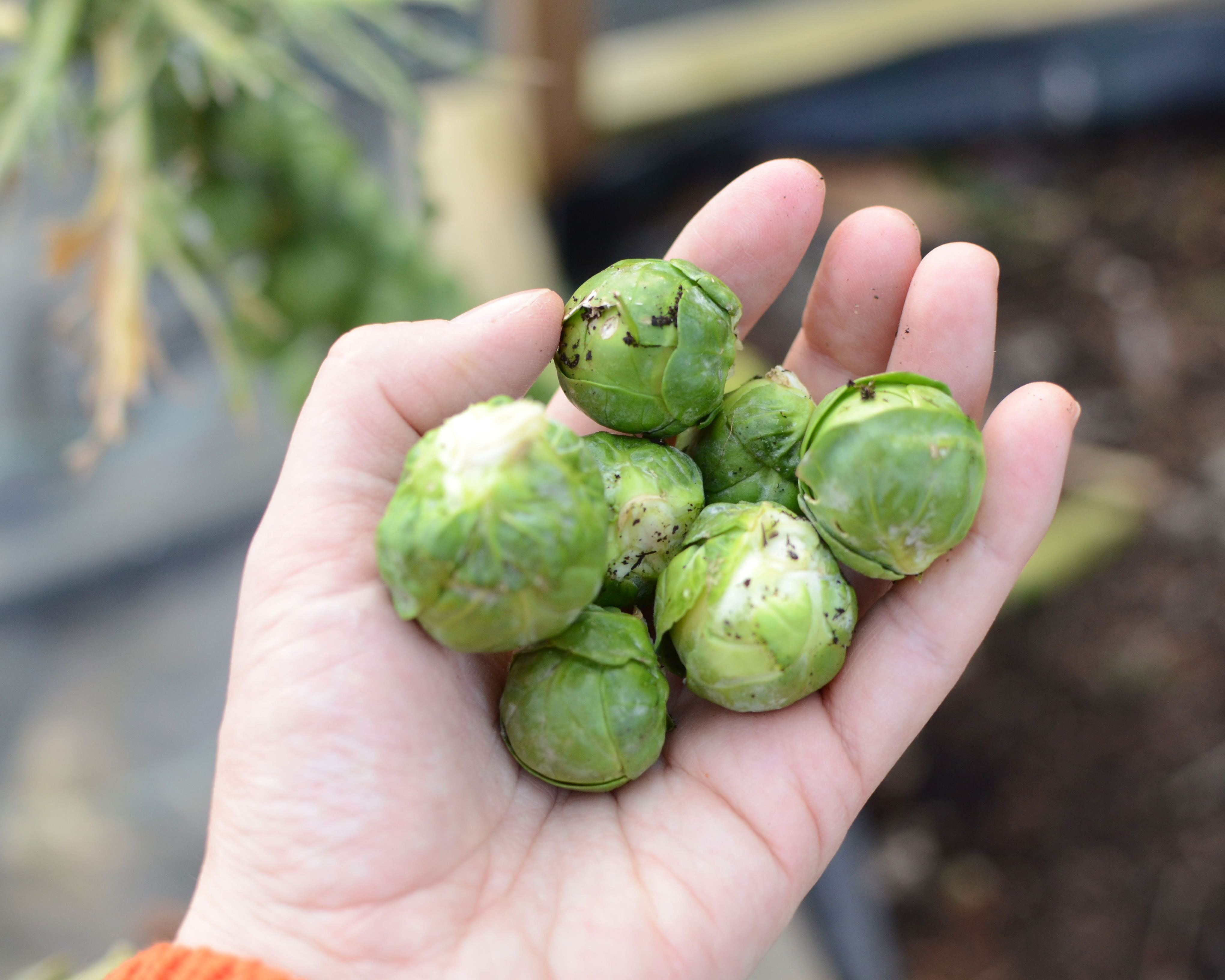
Do brussels sprouts come back every year?
Brussels sprouts do not come back every year, but they are actually biennial, meaning their natural life cycle is two years.
If you live in a zone where temperatures do not drop below about 15° F (-10°C) you might just be able to enjoy fresh sprouts for two years from the same plant.
How many brussels sprouts do you get from one plant?
Provided your brussels sprouts plants have been raised in well draining soil, watered regularly and were given at least 6 hours of sun a day, you could find over 50 healthy delicious sprouts on one plant.
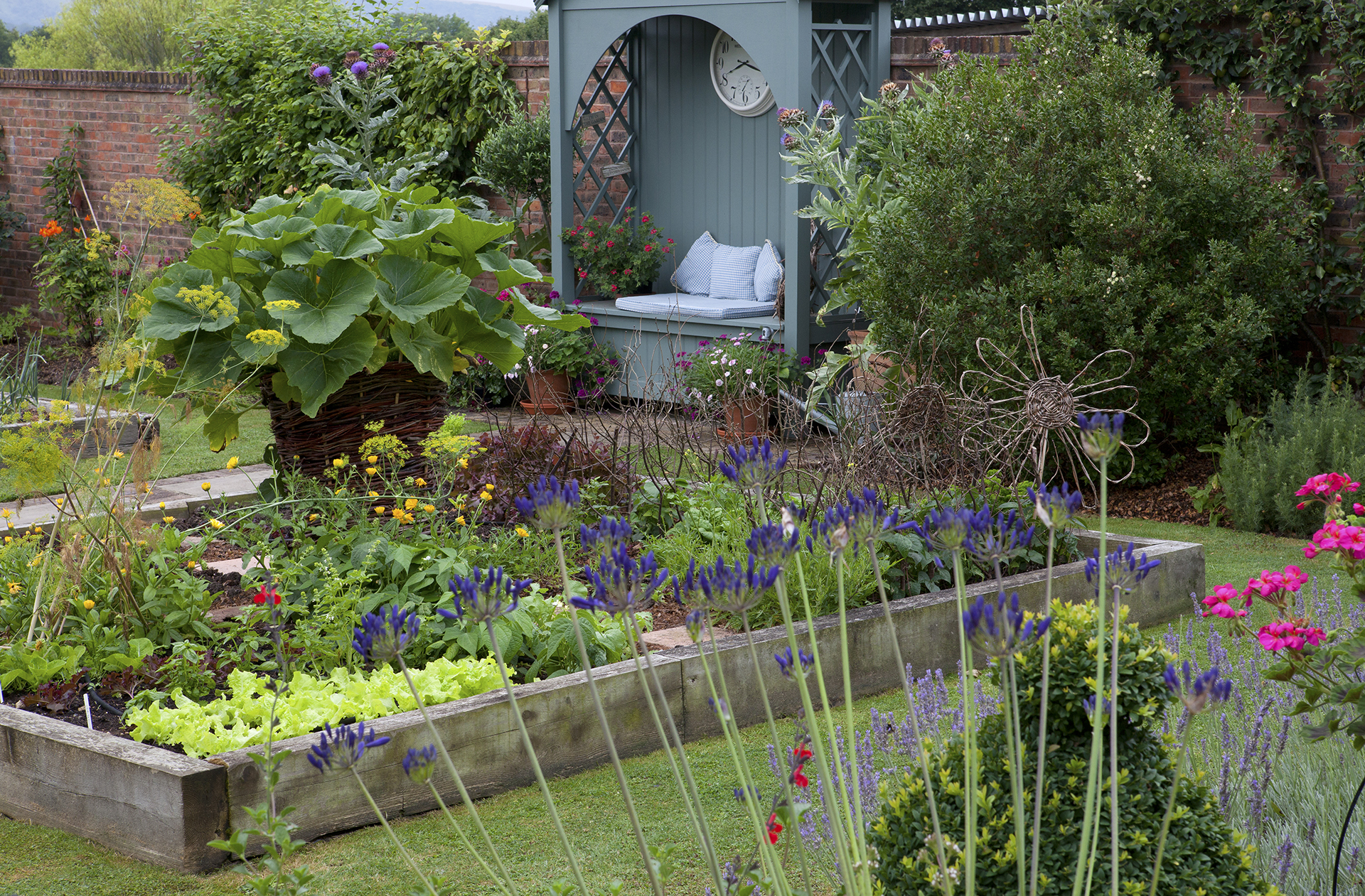
Good companion plants for brussels sprouts
Once you have mastered how to grow brussels sprouts you will find that lots of plants will happily grow alongside them. Some of the best companion plants include:
Sign up to the Homes & Gardens newsletter
Design expertise in your inbox – from inspiring decorating ideas and beautiful celebrity homes to practical gardening advice and shopping round-ups.

Emma received the keys to her first allotment plot in 2019 and has been documenting her progress on Youtube and Instagram ever since. As the allotment grew, so did her love of gardening and her follower count. Emma has a passion for writing and has contributed articles to Kitchen Garden magazine and Life lovers magazine, as well as starting her own blog – the pink shed.
Growing food has become one of her biggest passions and she enjoys sharing her trials and errors with her audience in a funny, honest and informative way.
-
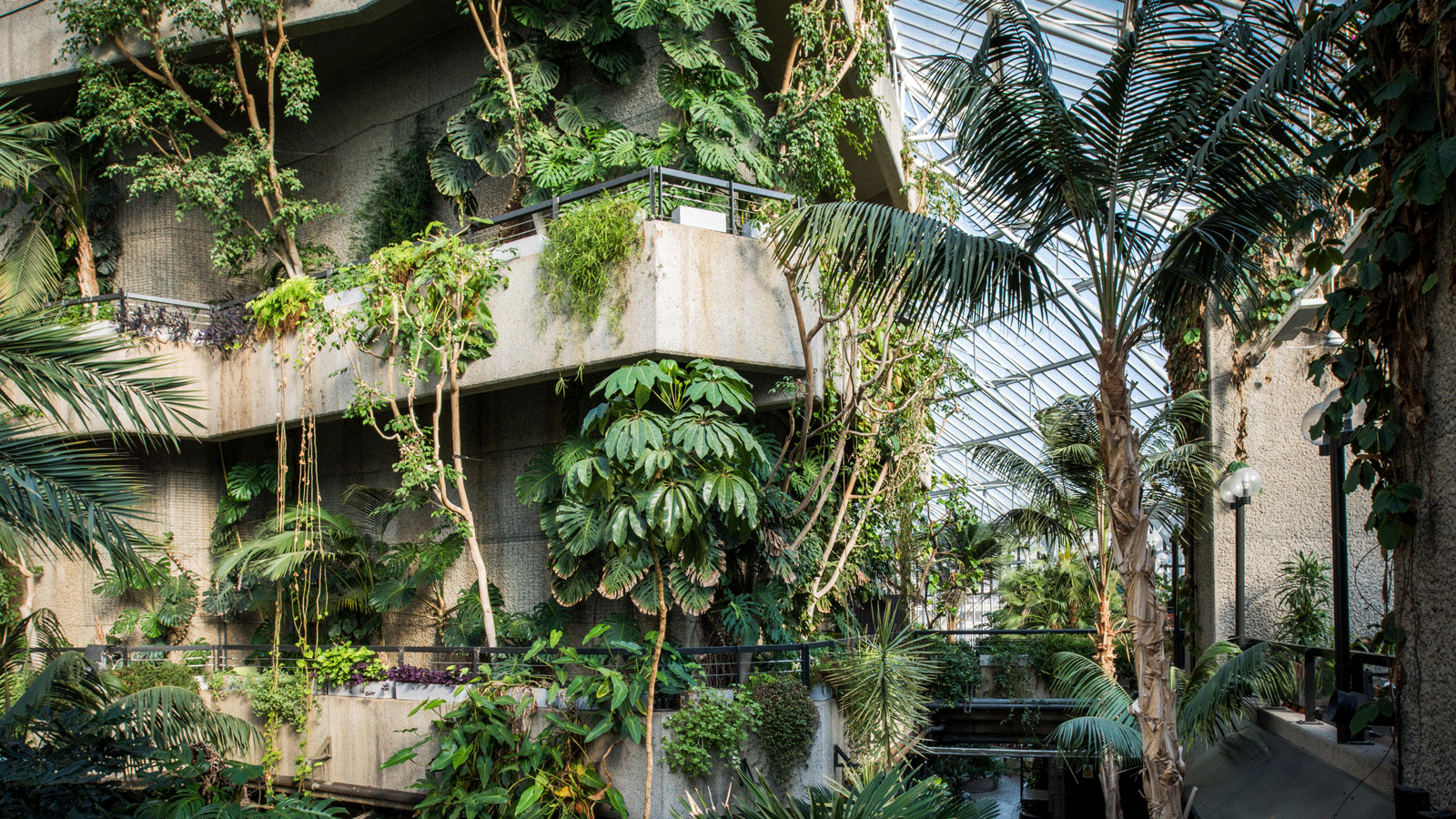 What is eco-brutalism? The naturalistic planting that pairs perfectly with brutalist design, and how you can get in on this emerging trend
What is eco-brutalism? The naturalistic planting that pairs perfectly with brutalist design, and how you can get in on this emerging trendThe angular concrete shapes of this modern architectural movement work beautifully when enhanced by natural planting for a softer edge
By Sarah Wilson Published
-
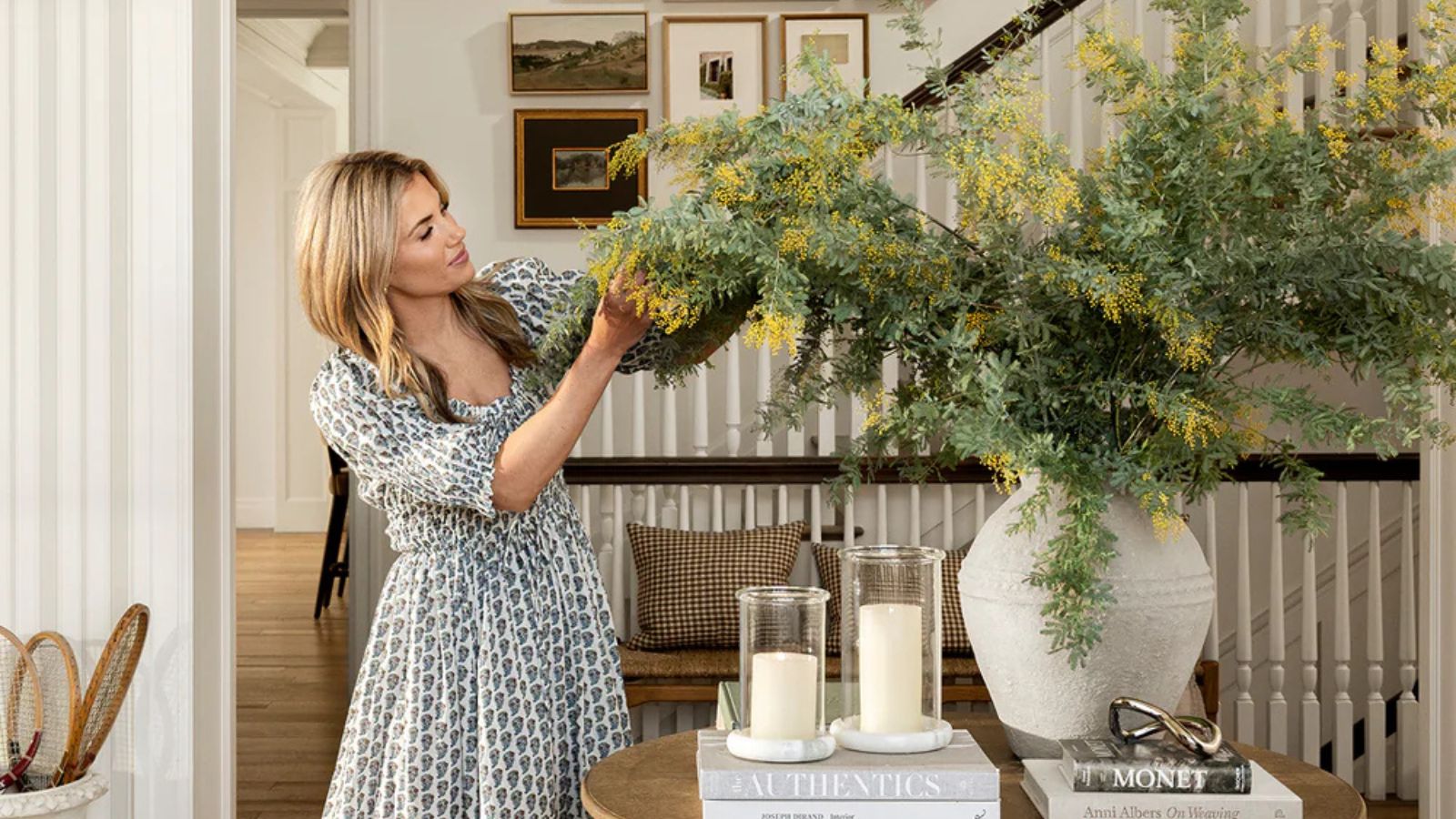 I've had a first look at the McGee & Co. summer 2025 collection, and I think you're going to fall head over heels for the vintage-style rattan pieces
I've had a first look at the McGee & Co. summer 2025 collection, and I think you're going to fall head over heels for the vintage-style rattan piecesThe new McGee & Co. drop is full of vintage charm – and the scalloped coffee table is my standout pick for summer
By Charlotte Olby Published